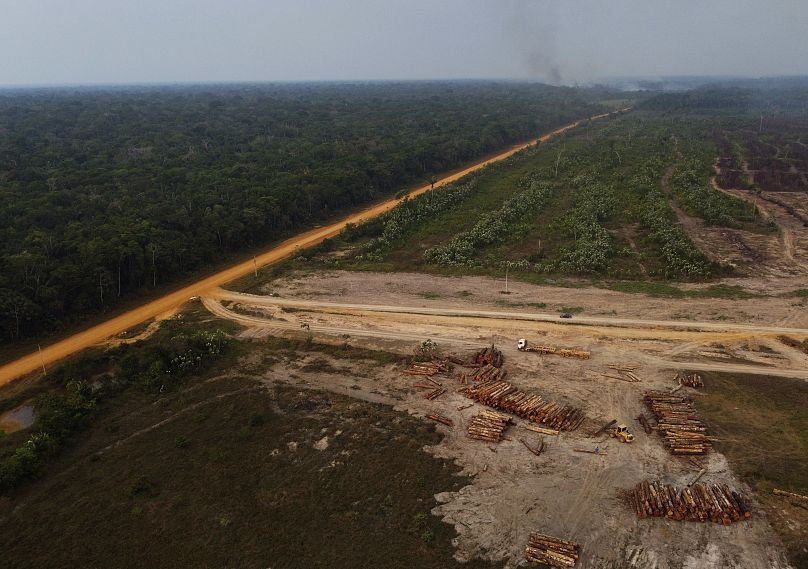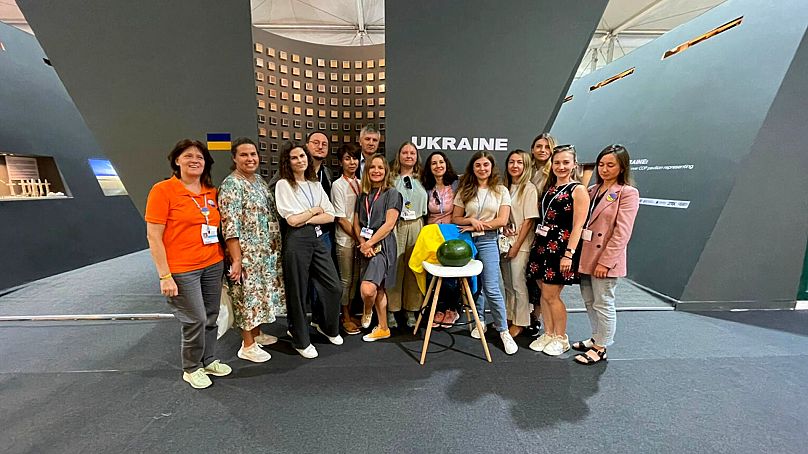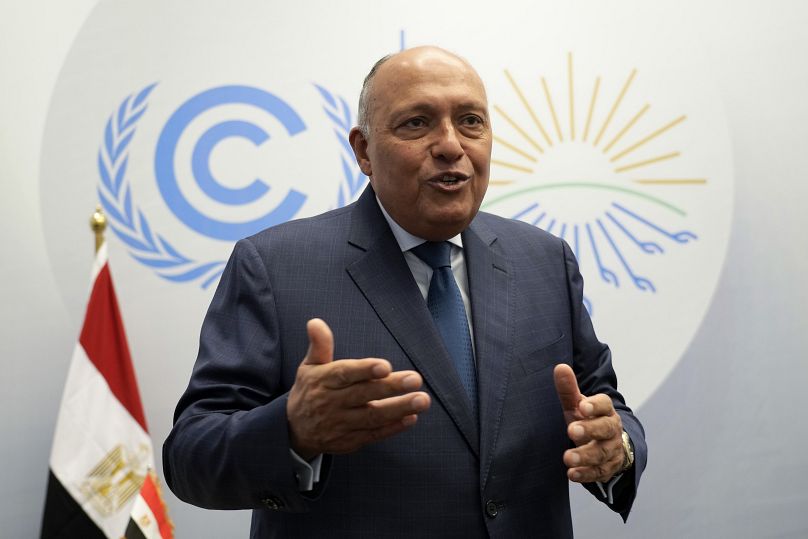With most of the big names now gone, negotiators are sitting down to work out the details of the final COP27 deal.
It’s a brand new week in Egypt with delegates returning to COP27after a much-needed break on Sunday.
 ADVERTISEMENT
ADVERTISEMENT
 ADVERTISEMENT
ADVERTISEMENT
With most big names now gone, we move into the second half of the conference, during which the nitty gritty of deals will be hashed out. Negotiators, delegates and officials will be looking to put together a text that will become the final agreement of this UN climate conference.
So what happened at COP27 today as we moved into day eight?
1. Three big rainforest nations form an alliance
Brazil, Indonesia and the Democratic Republic of Congo have formed a strategic alliance to coordinate the protection of their forests.
Together, they are home to more than half of the world’s remaining primary tropical forests. These endangered habitats serve as carbon sinks but their rapid destruction is releasing tonnes of CO2 into the atmosphere
The trio - the world’s three largest rainforest nations - signed a joint statement at talks in Indonesia ahead of the G20 meeting which begins on Tuesday.
In the agreement are calls for measures including countries being paid to reduce deforestation as well as a “new sustainable funding mechanism” to help developing nations preserve biodiversity.
Brazil’s incoming President Luiz Inácio Lula da Silva is expected to arrive at COP27 on Wednesday where he will discuss efforts to save the Amazon and other rainforests.
2. A new insurance system for countries hit by climate catastrophe
Today the G7 launched a new insurance system to provide financial aid to vulnerable nations hit by the effects of climate change.
Called the ‘Global Shield,’ this system is backed by the V20 - a group of 58 climate-vulnerable nations. At first, it will receive €200 million of funding, most of which is coming from Germany. Others including Denmark and Ireland will contribute the rest.
Some of the first recipients of this financial aid will include Bangladesh, Pakistan and Ghana.
Ghana’s finance minister Ken Ofori-Atta said it was a “path-breaking” effort that will help protect communities when lives and livelihoods are lost.
But civil society groups have warned that it shouldn’t distract from the wider effort to secure climate compensation from big polluters. Developing countries criticised the G7 for delaying discussion on a loss and damage fund and pushing the Global Shield as an alternative.
3. How well are countries addressing climate change?
A new ranking tracking how well countries are doing in addressing climate change was released today.
The Climate Change Performance Index is published by environmental NGOs Germanwatch and the New Climate Institute, together with the global Climate Action Network. It rated 63 countries - together responsible for more than 90 per cent of the world’s greenhouse gas emissions - on the current state of their climate protection measures.
The first three spots were left empty as no single country is doing enough to meet Paris Agreement goals.
But Denmark once again led the pack in fourth place with its commitments to loss and damage funding. Its 2025 goal to reduce emissions by 50 per cent could be at risk, however, as it falls behind on energy efficiency.
It was followed by Sweden and Chile in fifth and sixth place. Overall, the European Union came in 19th with the ranking of individual nations varying wildly. Denmark, Sweden and the Netherlands rank high whereas others like Poland and Hungary were part of the ‘very low’ performance category.
At the bottom of the list overall was Iran, just below Saudi Arabia and Kazakhstan.
4. Ukrainian negotiators celebrate the liberation of Kherson amid crucial climate talks
Over the weekend, the Ukrainian delegation placed a single watermelon on a chair outside of their pavilion.
Kherson is the capital of watermelons and it was a potent symbol at what are already highly charged negotiations for the country - its pavilion is shaped like a bomb crater.
Daryna Kulaha, a negotiator in Ukraine’s delegation spoke to Euronews Green about the work the Ukrainian delegation is doing at COP27. She has family in Kherson that have been unable to move for months.
“That's the number one priority and you cannot really think about climate when there is war because climate is about restructuring the economy. When there is no economy, you cannot restructure it,” Daryna says.
With a much smaller team than last year and a difficult journey to reach Egypt, Ukraine is focusing on its ambition to join the EU. Since Ukraine became a candidate for EU membership in June, the country is even keener to harmonise its laws and regulations with the European Green Deal.
But the country is also tracking the environmental consequences of the invasion, hoping to hold Russia to account for the damage it has done.
5. Is a final deal for COP27 on the way?
Reuters reported that COP President Sameh Shoukry said the first parts of a final text will begin “emerging” tonight. He believes “very few issues” will remain by Wednesday evening and a near-final text will be published on Thursday. On this hypothetical timeline, a deal would be finalised on Friday.
“Our common objective is to adopt consensus decisions and conclusions on Friday that will constitute comprehensive, ambitious and balanced outcomes of the Sharm El Sheikh conference,” he said in a statement.
UN climate chief Simon Stiell urged countries to use the remaining time to “build the bridge needed” to keep 1.5C in sight and make progress on loss and damage, adaptation and finance.
But for those who’ve been through this process before, there’s scepticism about the COP President’s timeline - particularly given the slow pace at which negotiations currently seem to be moving and the disagreements over wording that have already arisen.
“Doesn’t every COP presidency think they’ll get it done in time?” Greenpeace UK’s Chief Scientist Doug Parr joked on Twitter.













